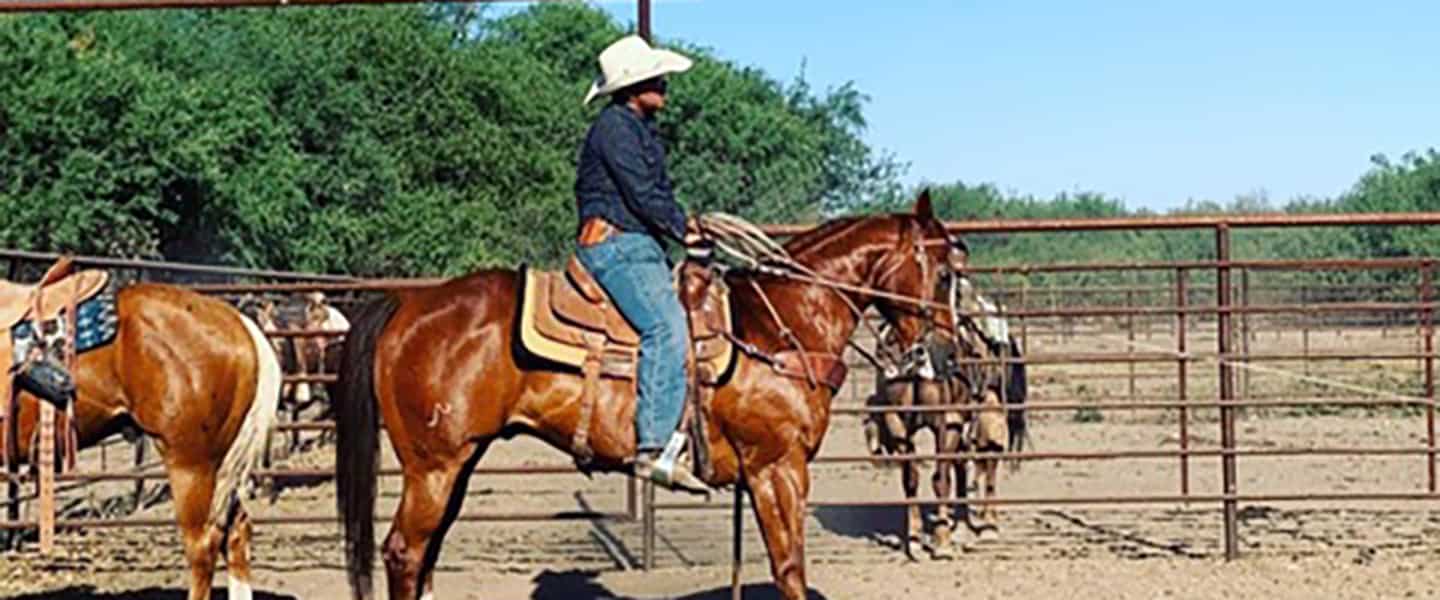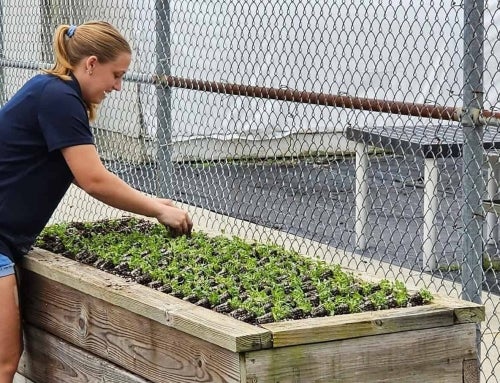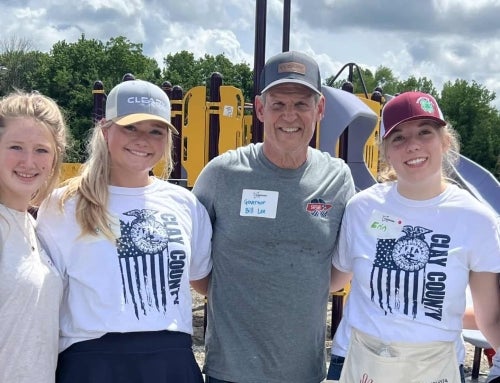At the beginning of the pandemic, when supply chain issues led to bare shelves in the supermarkets, Richard McPherson, agricultural education teacher and Rio Rico FFA advisor, started getting calls from concerned community members.
“They were hearing about the beef shortage in the news and wanted to know if we could raise cattle for them,” McPherson recalls.
The Rio Rico FFA Chapter in Rio Rico, Ariz., was eager to help. The chapter officer team spent several weeks running numbers and working out the logistics to launch a cattle operation at the high school farm. The result: a student-led commercial feeding operation.
Residents purchase feeder cattle from local ranchers and importers, and students raise them to market weight, which takes about seven months. Students divide the responsibilities, taking turns feeding, watering and monitoring the health of the cattle.
When it’s time to process the animals, they’re transported from the high school farm to local processing facilities, including the meat processing program at Gilbert High School in Gilbert, Ariz. Residents then pick up their cuts from the processor.
The FFA chapter doesn’t own the cattle or sell the beef, simplifying the operation, according to McPherson. Community members purchase the cattle and pay Rio Rico FFA for the feed and care.
Since 2020, Rio Rico FFA has raised and processed 12 head of Charolais cattle for the local community. Funds from the feeding operation are used to cover the cost of feed and vet care. The remaining revenue goes toward FFA jackets, travel and competition fees.
The funding is helpful but McPherson believes the experience is the biggest return on investment.
“It’s a real-life scenario and taking any shortcuts, like missing a feeding or not feeding the cattle enough, results in the livestock not performing,” McPherson says. “The students are learning valuable lessons from this.”
Even though he comes from a ranching family, Rio Rico FFA member Gerardo Verdugo appreciated the opportunity to expand his understanding of cattle management practices and behavior.
“Taking care of cows and watching them grow up is a huge responsibility and takes a lot of knowledge,” he says.
Rio Rico FFA member Jesus Mohinea has a part-time job at a local cattle ranch and understands what it takes to get beef from farm to table. He appreciates that other FFA members are learning about the beef industry too.
“It’s very important that students know where their food comes from,” he says. “Raising cattle on the school farm teaches them about the beef industry and how much goes into producing the food on their tables.”












